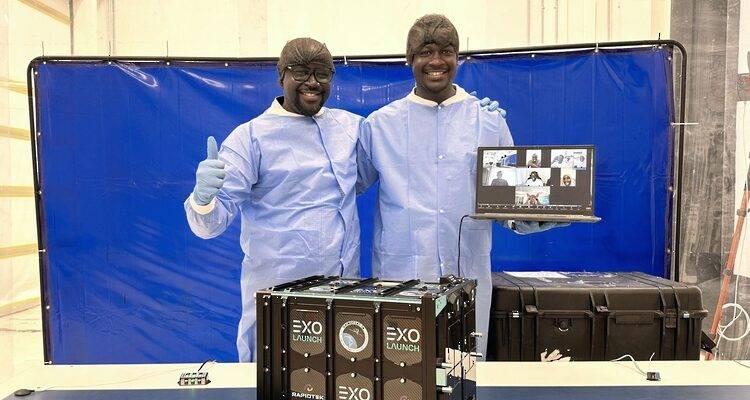SENEGAL MAKE HISTORY AS COUNTRY LAUNCHES ITS FIRST SATELLITE, GAINDESAT 1A
Senegal’s first satellite, Gaindesat-1A, was successfully launched aboard SpaceX’s Falcon 9—Transporter 11 rideshare mission on Friday, August 16, 2024, from Vandenberg Space Force Base, USA.
Developed through a partnership and joint programme between Senegal and its technical partner, the University Space Centre of Montpellier (CSUM), the earth observation nanosatellite will collect and transmit data to various measuring stations in the country for environmental monitoring and serve as a testing ground for various applications to achieve self-reliance in acquiring, analysing, and utilising imagery data in Senegal.
In acknowledgement of this milestone, President Bassirou Diomaye Diakhar Faye said, “Senegal is entering a new era today with the successful launch of our first satellite, GAINDESAT-1A, at exactly 6:56 p.m. from the Vandenberg base in California.
The result of 5 years of hard work by our engineers and technicians, this breakthrough marks a major step towards our technological sovereignty. I would like to express my pride and gratitude to all those who made this project possible.”
The Gaindesat-1A will provide valuable data to better manage Senegal’s water resources, improve weather forecasts and aviation safety, and contribute to the monitoring and management of Senegal’s lakes and watercourses.
The nanosatellite was previously scheduled for launch in July 2024. In 2019, Senegal announced its ambitious plan to build and launch its first satellite within two years.
The project is designed to harness space technology for socio-economic growth and scientific advancement while also fostering a vibrant local space ecosystem that supports research and drives industrial innovation, and the launch of the country’s first satellite demonstrates its commitment towards this goal.







